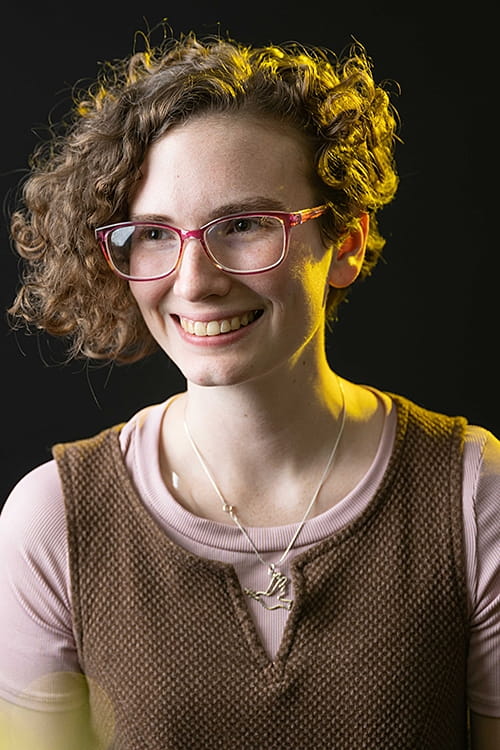
Flannery Currin, PhD student, computer science
Enhances social play with technology
“I am confident of Flannery’s ability to succeed in pursuing her research goals. She has a rare combination of talent, passion for her research topic, and an ability to execute her ideas. She is a student with outstanding potential who has all the characteristics needed to be a future leader in her research community.” -Juan Pablo Hourcade, associate professor, computer science
Hometown: Dallas, Texas
Faculty mentor/advisor: Juan Pablo Hourcade, PhD, associate professor, computer science, College of Liberal Arts and Sciences
What is your degree program and expected graduate date? PhD, computer science, May 2024
Please describe your research: I am studying low-tech supports for 3-8-year-old children’s social play. Specifically, I am looking at using e-book stories and an adult-controlled “voice agent,” which works like a puppet, to encourage children to practice role-playing in small groups. The voice agent provides adults with another channel of communication, which can be useful when it would be intrusive for an adult to step in and redirect. The voice agent can be used to help shy children engage with their peers.
In simple terms, why does this research matter? Touch-screen devices have made it possible for children to start using technology at younger ages, so it is important to understand how technology can support instead of hindering children’s development. Parents and other adults have a lot of control over how children use technology, so it is also important to include them in the process of designing technology for children. Children often use technology in isolation, so it is important to study how we can encourage adults to directly engage with children while they use technology and encourage children to connect with their peers and physical environment. It is also important to learn how we can encourage inclusive play in groups of children with mixed abilities.
How soon after starting at the University of Iowa were you able to participate in research? I was able to start my first semester!
How has being involved in research made you more successful at the University of Iowa? I came to the University of Iowa specifically to do research that felt meaningful. The guidance I have received from my advisor and other faculty mentors has led me to success at the university. I received the National Science Foundation’s Graduate Research Fellowship and was a fellow in the Iowa Leadership Education in Neurodevelopmental Disabilities Program. This has allowed me unique opportunities to work on interdisciplinary teams and take a holistic approach to my work.
What are your career goals and/or plans after graduation? I am interested in conducting research on how to design technologies that support people, especially people with disabilities, across the lifespan. I have not decided yet whether I would prefer an industry or academic research position, but I am also interested in teaching or mentoring students.
Banner location: not on display—
